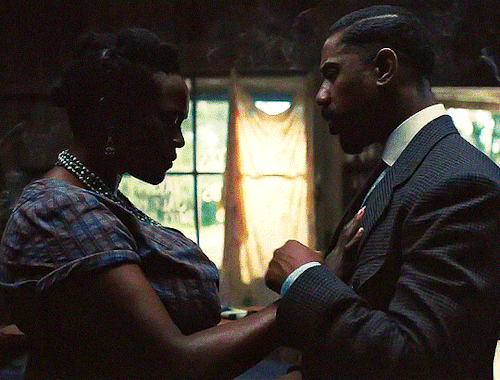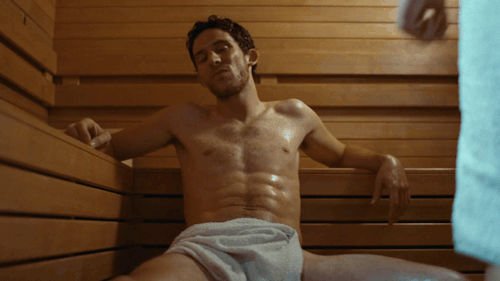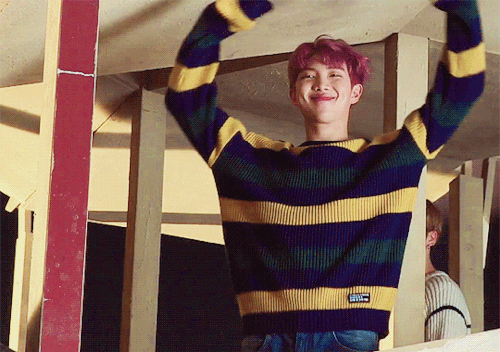⋅ʚ Aftersun: Are We Happier In Our Memories Than In Reality?⋅ʚ



⋅ʚ Aftersun: Are we happier in our memories than in reality?⋅ʚ
➴ January 23, 2025. ₊˚ෆ

While this is a transposition that has nothing to do with Seneca's entire statute, I firmly believe that Charlotte Wells's film is so multifaceted that it allows for opposing and complementary readings of its characters in equal measure.
────────────────────── ୨ৎ ─────────────────── The situations are pleasant, simplistic yet heartbreakingly human, with Calum's (Paul Mescal) tender witticisms and his father jokes concealing conflicts that slowly escalate into their reality. The film shows us, without much fuss or show, that time does not heal everything, that we are happiest in our memories because they sometimes fade for our sake. What are we but the pictures of our happy moments, or the silly dances in places where no one knew us? Aftersun is a subtle visual and narrative treatment of pain, but it does not completely erase it. Like time, the film navigates in our memories, in what we may have overlooked unintentionally or by force. We are Sophie in the past and in the present, sometimes also Calum, trying his best not to ruin the moment at the cost of our own peace.

It would be foolish to pretend that this coming-of-age film, full of emotional mirrors for the viewer, is a film of tissues and snot for the simple pleasure of appealing to our empathy.
Aftersun works on a micro level with vital elements such as nostalgia and loss in all its forms. Action, or the lack of it in the face of different situations, is also what makes Wells' work so special, for aren't we the ones who deform past events to the point of unconsciously changing them? the ones who miss not having noticed things we couldn't intervene in? The powerlessness of an isolated space like the present of the past, Sophie's position as a child not allowed to help her father, and Calum's willingness to keep everything to himself in order to make her happy.

The intimacy of the film goes beyond the superficial analysis of its subject, because visually it feels alive, with a pastel, almost dreamlike texture, and a camera that allows the characters to exist in silence, to be more than their careful dialogue. The lighting plays an important role in the expression of the characters' minds, like the clue that is removed by the first experience, which, from a spectator's point of view (like Sophie's), makes all the sense in the world. His narrative does not replace the aesthetic, but accompanies it, without in any way overlapping it.
One hour and forty-two minutes condense weeks of experience, years of pain and the innocence of two characters who are nothing more than ghosts to us and to themselves, and all that time is not enough to heal the emptiness Aftersun leaves in its viewers or to dry the escapist tears of those who say they never cry at the cinema. It's a film to live and relive, because your own memories will be there, and it will look more beautiful with every viewing, even if it hurts.
-ˋˏ philocalistherzˎˊ
More Posts from Tinkermeaway and Others
Another reason I respect Sinners is how Pearline is treated.
She is a married woman that sleeps with Sammy, when she dances and sings she does it in a seductive/sexy way but she is never treated or viewed as a negative figure. She isn’t a whore, or a slut, and she isn’t viewed as a temptation to Sammy.
In fact, the only part of the movie where you are supposed to disagree or (maybe) dislike Pearline is when she doesn’t want to eat the garlic. The movie makes us grieve her when she is killed.
Any other horror movie would have given her a brutal death, it would have been “deserved”.
Instead, Sinners goes out of its way to show that she is a human being, and despite her sins we love her. Decades after she is killed, Sammy names his bar after her despite knowing her for one day. The movie honors her.
in the words of katya, “here’s the thing about being gay: sometimes, it gets sad.”
What really gets to me is Stack promising Sammie that he could drive the car on the way back—which Sammie does—but no one could’ve ever imagined that he’d be driving back alone.
There’s also the moment at the beginning of the movie, when Smoke and Stack pick up Sammie from the church, and Stack promises their Uncle Jed that he and Smoke will get Sammie back to him in one piece—which they do, more or less.
Even though it’s Sammie who physically gets himself back home, he does, in fact, make it back in one piece—thanks to Smoke making Stack promise not to hurt Sammie and Stack agreeing to let Sammie live out the rest of his life.
It’s beautiful—yet bittersweet—how, even if Stack doesn’t realize it, all three of his promises regarding Sammie were honored in the end.
Jin's Dad Jokes pt 2
*After third Love Yourself highlight reel"
Jin: What do you call me in an accident?
BTS: What? *internally groaning*
Jin: An emer-JIN-cy.*windsheild laughter*
BTS: *cringing to another level*

A few more thoughts


This art by @Doodlemunster is just gorgeous. Doesn't she look like one of the Muses here? Actual goddess, I am telling you. From the moment we saw Miss thang on the screen, she has not been coded as human.

Siren? Of course
The first time we see Pearline, she is standing at the station, admiring the way Sammie's gift lures people in. His voice is something else; no wonder folk can't resist. As a siren, it's usually the other way around. She sings and men are at her mercy. I think this is why her gaze looks so curious. Pearline clocks his shit immediately. She can see something supernatural within this boy. Not to mention, the sinful nature of their interaction. She is the ultimate temptation for Preacher Boy. A married woman who adores him and his guitar? A blues singer that knows her way around a shotgun? A harlot who spends her nights entertaining fellow sinners? Jedediah would have a heart attack.

Werewolf? Absolutely
Why else do we learn nothing about her personal life? Her job? Her husband? She only really interacts with Sammie over the course of the night. That Juke Joint was packed with Black folk who've spent their whole lives in Clarksdale, Mississipi. Why doesn't anyone recognise her? As a lycanthrope, it is safer for Pearline to live on the edge of society.

Vampire? Eventually
Her last words before she turns are 'Sammie, run'. Does that sound like a woman who is happy in her married? Who longs to see her husband again? Scratch that, does that sound like a mortal? When Annie gets turned she refuses to live as anything but a human being. Her disgust was plainly stated, and thankfully Elijah respected that.

Pearline, on the other hand, accepts what is coming!! There is nothing to run from because she is already a creature of the night. From where I'm standing, Pearline is a werewolf in her mid to late 20s. She has experienced gruesome transformations before and with the full moon outside, she knows how ugly things could get. Her final warning to Sammie is a profound act of love and confirmation of her familiarity with the supernatural.

TLDR: This woman is not human. Never been human and I love that for her.
Something else about Sinners (yeah I’m never gonna shut up about this) is the way black people and vampires are portrayed as sharing similar lifestyles. This is really emphasized when Pearline sings Pale Pale Moon. The lyrics talks about black people working all day in the Jim Crow South and the only time they have a semblance of freedom is under moonlight. Pearline even says that she doesn’t want the sun to shine and she doesn’t care if it never shines again because under the pale moon they can sing and they’re free!!!!
HER
It is here.
I CAN’T WAIT TO GET MY COPY (in a month probably)
THE ALBUM IS FUCKING GOOD I CANT.
when your ex best friend is absolutely eviscerating you emotionally but you still make time to try and get a quick sneak peek at his cock ❤️


Happy Birthday Namjoon 💕

Happy Birthday to the best leader, killer rapper, cutest fluffball and wonderful person.
Happy Birthday Kim Namjoon 💕
I love you ❤️
-
 tinkermeaway reblogged this · 2 weeks ago
tinkermeaway reblogged this · 2 weeks ago -
 solarstations liked this · 2 weeks ago
solarstations liked this · 2 weeks ago -
 tanet0412 liked this · 5 months ago
tanet0412 liked this · 5 months ago -
 hislittleone-777 liked this · 5 months ago
hislittleone-777 liked this · 5 months ago -
 whispersofrage liked this · 5 months ago
whispersofrage liked this · 5 months ago -
 mordummios liked this · 5 months ago
mordummios liked this · 5 months ago -
 quantumloveblog liked this · 5 months ago
quantumloveblog liked this · 5 months ago -
 thv-dila liked this · 5 months ago
thv-dila liked this · 5 months ago -
 blondemadona liked this · 5 months ago
blondemadona liked this · 5 months ago -
 teheetete liked this · 5 months ago
teheetete liked this · 5 months ago -
 pinkdazzle liked this · 5 months ago
pinkdazzle liked this · 5 months ago -
 zepolarbear77 liked this · 5 months ago
zepolarbear77 liked this · 5 months ago -
 asamitaki99 liked this · 5 months ago
asamitaki99 liked this · 5 months ago -
 oliveswiftly liked this · 5 months ago
oliveswiftly liked this · 5 months ago -
 philocalistherz reblogged this · 5 months ago
philocalistherz reblogged this · 5 months ago

Tink or Tinker ● She/Her ● Cinema and some other stuff ● Letterboxd is @sonnetink
74 posts